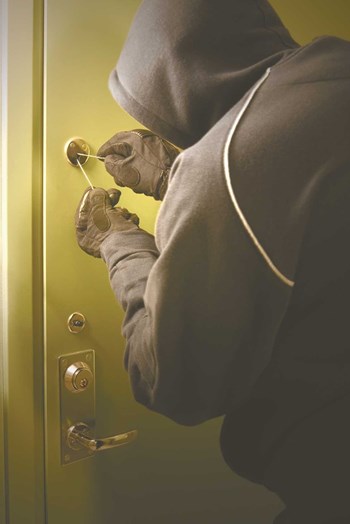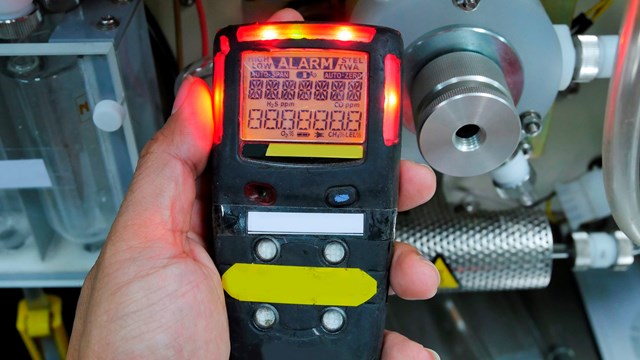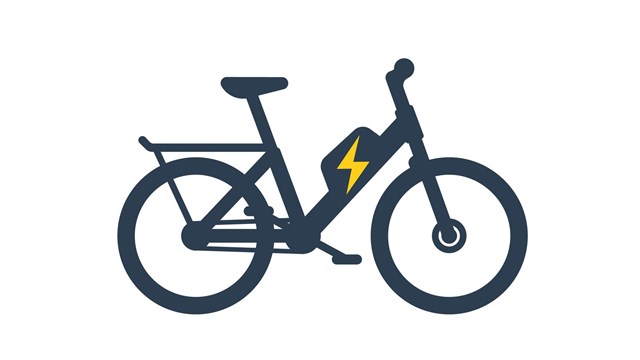
The expression “Better safe than sorry” is known by everyone. As apartment dwellers, it is important not to take advantage of the sense of security felt by having a doorman posted at the door or hallways lined with sprinklers and let our guards down. There are several areas where being proactive can make all the difference.
• Install and Maintain Smoke Detectors
Follow the manufacturer’s directions to install them in your home, especially outside of each sleeping area. Replace the batteries twice a year or when the detector chirps to signal the battery is dead.
• If There is a Fire in Your Building:
Stay inside your apartment. Keep your door closed. Seal the door with duct tape or wet sheets and towels. Seal ventilators and any other opening where smoke may enter. Turn off air conditioners. Fill your bathtub with water. If the front door gets hot, wet it down. Unless flames or smoke are coming from below, open your window a few inches at the top or bottom. Don’t break the windows; they may need to be closed later. Call the Fire Department with your apartment number and a description of the conditions in your apartment. If you feel you are in grave danger, open a window and wave a bed sheet for firefighters to spot you.
• If The Fire is in Your Apartment:
Get everyone out. Stay low as you go out. Close but don’t lock the doors in the apartment. Be knowledgeable about your building’s escape route. Familiarize yourself with the placement of the fire exits. Go down the nearest stairway, holding the railing. Don’t use the elevator. Have a flashlight with you. Fire is black and most people die because they can’t see where they’re going. If your clothes catch fire, don’t run. Stop where you are, drop to the ground and roll over and over to smother the flames. Cover your face with your hands to protect your face and lungs.
• Things You Can Do to Prevent a Fire:
Keep space heaters well away from flammable substances such as paper, curtains or clothing.
Store matches where children can’t get them and teach children about match safety and that they should be used by adults only.
Have a portable dry chemical fire extinguisher available near your kitchen or fireplace. Baking soda will also help to smother stove fires. Be careful with the placement of pots and pans on the stove. Turn the handles inward so that they don’t get knocked off the stove. Don’t leave cooking unattended.
If you like to use candles, never leave them unattended, near combustible materials or burning when you go to bed.
Care for electrical materials should include checking all electrical cords. Replace any that are cracked or frayed. Don’t over load extension cords or run them under the rug.
• Safety for Children and the Elderly Require Special Measures
Children love to gaze out the window. Be certain you have window guards and that they have been annually checked for proper installment.
During our hot, hazy New York summers we should all be careful not to get dehydrated and drink extra water; however, the elderly suffer more than the others. Heat stroke is considered a medical emergency. Call 911 if you need help.
• Theft and Crime are Other Issues about
Which We Can Be Proactive
Many people who live in doorman buildings feel that there is enough security so that they do not need to lock their doors when in the building. The Police Department has reported that even in this type of dwelling, robberies take place. One needs to realize that there are nonresidents in the building throughout the day—and protect themselves as they would in a single family home. Doors should always be locked when leaving the apartment when going down the hall to visit with a neighbor, going to the laundry room or the gym.
If you live in a non-doorman building, be certain all lobby doors are locked behind you after you enter the building. Do not permit someone into the building if they ring your intercom and you don’t know or expect them to be visiting.
Keep emergency phone numbers such as the neighborhood police, fire departments, and Red Cross posted in a prominent place in your apartment. Also keep a transistor radio and flashlight in an easily accessible location as well as batteries which have not expired.
Although residents can be proactive about their safety and security, boards of directors, resident managers and property managers have a role too.
You should be provided annually with a "Fire Safety Plan," which outlines safety measures and egress from your building. Stairwells should be kept clean, well lit and be object free.
Buildings should be well lit on the outside of the front door. Security cameras should be maintained and functioning.
It’s also helpful if buildings have a Safety and Security Committee, which can take on the overall emergency planning for the building, insure that the residents understand the process and perhaps provide extra help for evacuating the elderly and children.
Lenore Barton is an associate broker with Warburg Realty and a contributor toThe Cooperator.






Leave a Comment